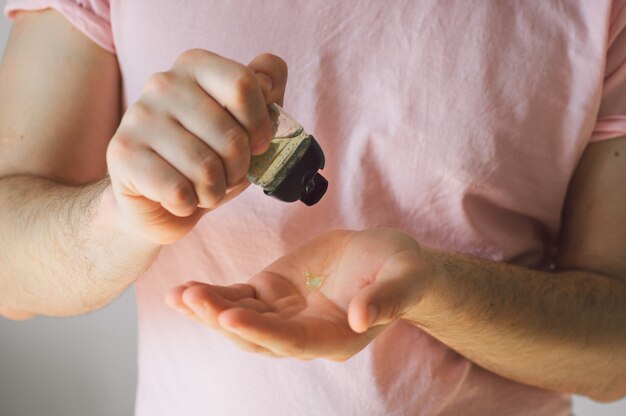Is Niacinamide the Secret to Clearer Skin? Exploring Its Role in Treating Acne
Dealing with acne can feel like a never-ending battle. With a plethora of products promising miraculous results, it can be overwhelming to find a solution that genuinely works. One ingredient often spotlighted in skincare discussions is niacinamide. But does niacinamide help with acne? Let’s delve into the science, uses, and benefits of this skincare powerhouse.
What is Niacinamide?
Niacinamide, a form of vitamin B3, is an essential nutrient our bodies need to function properly. It plays a crucial role in cell repair and energy production. In skincare, niacinamide has gained a reputation for its versatile benefits, catering to various skin concerns, notably acne.
The Science Behind Niacinamide
Research suggests that niacinamide exhibits promising anti-inflammatory effects, making it particularly beneficial for conditions like acne. Its ability to regulate sebum production is another reason why it’s favored in acne treatments. By controlling oil production, niacinamide helps minimize one of acne's primary culprits: excessive oiliness.
How Niacinamide Works Against Acne
Reducing Inflammation
Inflammation is a key player in acne development. By soothing and calming irritation, niacinamide helps reduce the redness and swelling associated with pimples. This anti-inflammatory property not only diminishes existing pimples but also prevents them from becoming more severe.
Balancing Oil Production
Excessive oil production leads to clogged pores, which can ultimately develop into acne lesions. Niacinamide helps in balancing sebum levels, making the skin less oily and more balanced. This regulation helps to prevent the formation of new acne.
Strengthening Skin Barrier
A compromised skin barrier invites various skin issues, including acne. Niacinamide enhances the production of ceramides, strengthening the skin’s protective barrier. A robust barrier ensures skin health by keeping irritants and bacteria at bay, which may otherwise exacerbate acne.
Additional Benefits of Niacinamide for Skin
Fading Hyperpigmentation
Post-acne marks, such as hyperpigmentation, can be as distressing as active acne. Niacinamide is known for its ability to fade dark spots and even out skin tone, giving your face a more uniform appearance.
Improving Skin Texture
Beyond acne, niacinamide also aids in refining skin texture. By enhancing cell turnover, it helps to clear dead skin cells, promoting smoother, more radiant skin.
Hydration Boost
While it's effective at controlling oil, niacinamide doesn't dry out the skin. In fact, it aids in retaining moisture, offering a balance that hydrates while managing sebum production.
Incorporating Niacinamide into Your Skincare Routine
Choosing a Product
Niacinamide is a common ingredient available in serums, moisturizers, and even cleansers. Look for products with a concentration of 2-5% niacinamide for acne-prone skin. Higher concentrations can be beneficial but might also increase the risk of irritation, so it's crucial to find a suitable formulation for your skin type.
Layering with Other Ingredients
Niacinamide is versatile and pairs well with a variety of skincare ingredients. However, understanding how to layer it effectively is essential for getting the most out of your regimen.
Compatible Ingredients:
- Hyaluronic Acid: This duo is ideal for hydration and improving moisture retention within the skin.
- Zinc: Works alongside niacinamide to balance oil and soothe irritation.
Ingredients to Be Cautious With:
- Vitamin C: Though both are effective, layering them together can reduce their efficacy for some individuals. It’s best to use them at different times of the day.
Frequency of Use
For beginners, using a niacinamide product once daily is a good start. As your skin acclimates, you may increase to twice daily, provided no irritation occurs.
Who Should Use Niacinamide?
Niacinamide is generally well-tolerated by all skin types, including sensitive skin. However, as with any product, performing a patch test before full application can help prevent adverse reactions.
Considerations for Sensitive Skin
If you have sensitive skin or conditions like rosacea, start with lower concentrations and monitor your skin’s reaction. Niacinamide’s anti-inflammatory properties can be beneficial for sensitive skin, but gradual introduction is key.
Practical Tips for Maximum Benefits
- Patch Test First: Always patch-test new products to ensure compatibility with your skin.
- Consistency is Key: Use niacinamide consistently to see the benefits over time, as it can take several weeks to notice significant improvements.
- Adjust Based on Your Skin: Pay attention to how your skin responds to niacinamide. Adjust usage frequency and concentration accordingly.
- Layer Smartly: Understanding which products to pair with niacinamide will help maximize its benefits.
Alternatives and Complementary Ingredients
While niacinamide is effective, it’s not the only ingredient beneficial for acne. Combining it with other acne-fighting ingredients can enhance its effects.
Salicylic Acid
This beta-hydroxy acid (BHA) is excellent for exfoliating inside the pores, helping to clear out debris and prevent clogs.
Benzoyl Peroxide
Effective in killing acne-causing bacteria, it’s commonly used in conjunction with other treatments. However, it can be drying, so balancing with niacinamide can help maintain hydration.
Retinoids
These vitamin A derivatives increase cell turnover and have been proven effective in treating acne, hyperpigmentation, and fine lines.
Final Thoughts: Is Niacinamide Right for You?
Niacinamide is a promising ally in the fight against acne, boasting anti-inflammatory, oil-regulating, and skin-strengthening properties. It offers numerous advantages, not just for treating acne but also for enhancing overall skin health. By incorporating niacinamide thoughtfully into your skincare routine and combining it with other suitable ingredients, you can create a regimen tailored to your skin’s unique needs.
🗒️ Practical Takeaways
- 👍 Anti-Inflammatory Power: Niacinamide effectively reduces acne-related redness and swelling.
- 💧 Hydration Hero: It balances oil production without drying out the skin, maintaining optimal hydration levels.
- 🔬 Versatile Partner: Niacinamide can be paired with other beneficial ingredients for enhanced acne treatment.
- ⏰ Patience Pays Off: Consistency and patience are vital—give it a few weeks to see improvements.
- 🌟 Suitable for All: Generally well-tolerated across various skin types, including sensitive skin.
By integrating niacinamide into your skincare regime, you're not just targeting acne—you're investing in healthier, more resilient skin.

